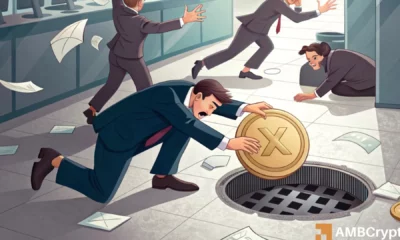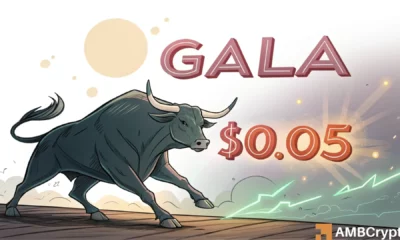This is how Terra fiasco is forcing South Korean regulators’ hand

Investors have lost a significant chunk of their savings from the damage caused by the Terra [LUNA] crash. Well, the incident sent shockwaves across the crypto ecosystem, dragging down the entire market. Around $45 billion was wiped off the two tokens’ market cap within a week- for starters.
‘Enough is Enough’
In light of the disaster, South Korean regulators looked to tighten scrutiny and supervision of crypto exchanges, according to a 24 May report by The Korea Times. At an emergency two-day National Assembly seminar ending on 24 May, crypto exchange leaders and high-ranking government officials discussed measures to counter future fiascos like the Terra-Luna collapse.
In fact, on 25 May, the Financial Supervisory Service (FSS) decided to analyze the risk characteristics of virtual assets in the country. Wu Blockchain, a famed news agency reshared this development on the social media platform.
Because of the impact of the Terra incident, the Korean financial regulator will establish a unified standard for analyzing the risk characteristics of virtual assets to strengthen the monitoring of the virtual asset market. https://t.co/JbCaBixqYY
— Wu Blockchain (@WuBlockchain) May 25, 2022
The said authority aimed to remove the method currently evaluated by exchanges in different ways and unify them. The report added,
“Although, the standardization work carried out is ‘only at the beginning stage’. But it is expected that a uniform evaluation system can be ordered from the virtual asset exchange once a legal system is established.”
To analyze the risk characteristics of virtual assets in the country, FSS contracted a ‘service contract with a research institute affiliated with a university.’ Further, the authority is supposed to detach from the exiting method used by exchanges to evaluate potential risks.
Consider this for instance- Sometimes, when the coin is released, the white paper is not easily available to the investors. Hence, the lack of information and difficulty in evaluating makes it difficult for investors to assess the coin’s value. It, therefore, becomes challenging for legal authorities to protect investors legitimately.
Surprisingly, there is no way to enforce regulatory modeling. But aforementioned step, when successfully executed, could curb further losses within the crypto sector.
It should be noted that on 23 May, local media reported that South Korean police contacted the country’s leading crypto exchanges with a request to freeze any funds linked to the Luna Foundation Guard (LFG). This included representatives from Upbit, Bithumb, Coinone, Korbit, and Gopax.
This is the reason why several other exchanges in South Korea kept their distance from the accused.
According to heraldcorp, Do Kwon contacted five South Korean exchanges to relist when LUNA 2.0 goes live. But as LUNA is under investigation after its failure, several other exchanges in South Korea except Upbit are keeping their distance. https://t.co/O7IL8lH1zh
— Wu Blockchain (@WuBlockchain) May 25, 2022






